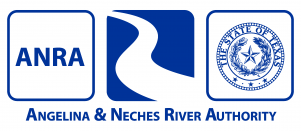Identifying a Wastewater Nuisance
If you suspect what appears to be a violation of environmental laws and regulations, within the Authority’s OSSF Jurisdiction, please fill out an official OSSF Complaint Form.
Complaints can be submitted for properties outside of the Authority’s OSSF Jurisdiction, but the Authority does not have the legal authority to investigate those complaints. However, the Authority staff will contact the Authorized Agent within the property’s jurisdiction to conduct the investigation.
Examples of a malfunctioning, failing, or non-existent OSSF system include:
- Standing water or damp spots near the septic tank or drainfield
- Bad odors around the septic tank or drainfield
- Bright green, lush grass over the septic tank or drainfield, even during dry weather
- Algal blooms in nearby ponds or lakes
- Exposed pipe or raw sewage
Submitting a Complaint
Although the Authority can usually complete an investigation within a matter of days, 150-200 complaints are investigated annually, so additional time may be needed. Texas State Law allows the Authorized Agent up to 30 days to complete an investigation. To aid in a timely investigation:
- Fill out the complaint form completely, including contact information; however, complaints can be anonymous.
- Draw an accurate map on the complaint form in the designated area and provide specific details about the location, including addresses and lot number, if possible.
- Provide specific details about why you believe a violation has taken place.
What to Expect After Filing a Complaint
Although the Authority staff work diligently to complete investigations within a timely manner, there are often legal processes and procedures that may delay immediate action. When a complaint is found to be valid (based upon documented evidence), the investigator of the complaint may:
- Attempt to get the situation resolved by allowing the individual time to correct the alleged violation
- File in a local Justice of the Peace Court, municipal court, or a higher court as deemed appropriate
Failure to Comply with Enforcement Actions
Non-compliance with OSSF rules and regulations may result in fines and penalties. A homeowner can be prosecuted and may suffer legal penalties for using an inadequate or unlawful septic system. Licensed professionals who oversee OSSF evaluation, design, installation, and maintenance may also face punishments, including license revocation.
OSSF & Environmental Impact
Wastewater nuisance complaints can be reported to ensure that state and county regulations are met to promote public health, safety, and general welfare. The Authority, TCEQ, and other partners perform routine water quality monitoring on the major water bodies in the Neches River Basin.
Of the monitored stream miles in the Neches River Basin, more than 42% are on the Texas Integrated Report of Surface Water Quality for Clean Water Sections 303(d) list of impairments, with 21% of those stream miles impaired for bacteria. For more information, please visit: https://www.tceq.texas.gov/waterquality/assessment.
Of the approximately 15,000 licensed septic systems in Angelina County alone, on average, the Authority investigates approximately 150 to 200 failed septic system complaints every year, most of which turn into active enforcement cases.
Considering the high number of investigations, in addition to water quality data, the Authority estimates that 15%-25% of licensed septic systems are failing in some way. Stakeholders agree that the high number of failing or non-existent sewage systems in our area are a significant contributor to water quality impairments. For more information about the Authority’s Clean Rivers Program or Clean Water Act projects, click the links below.
